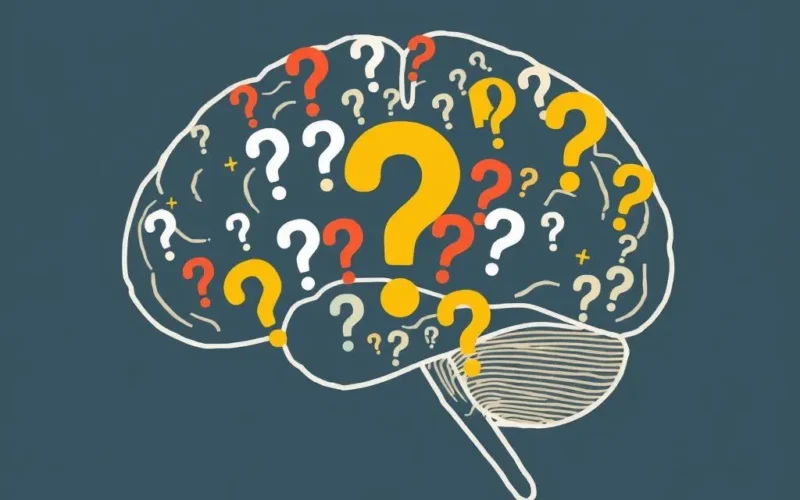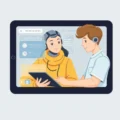Imagine a world where mastering a new language, learning to play the piano like a virtuoso, or coding complex software isn’t a journey of years filled with practice and frustration, but a matter of mere moments. Just plug in, download, and *know*. The skill is instantly uploaded to your mind, ready for immediate use. It sounds like something straight out of a cyberpunk novel or a far-future sci-fi film, doesn’t it?
This impossible-sounding dream of instant skill acquisition sparks fascinating questions about technology, our brains, and the very nature of learning itself. What would it mean for education, for careers, for personal growth? We touched upon this mind-bending concept briefly in a recent short video. Take a quick look:
Table of Contents
The Science Fiction Dream vs. Today’s Hard Work
Right now, learning a new skill is a process. It involves focused attention, repetition, making mistakes, receiving feedback, and allowing our brains to physically change. Our neural pathways strengthen and rewire themselves through a process known as synaptic plasticity. This takes time and effort.
The science fiction concept of downloading skills bypasses this entirely. It posits a method where complex information and motor control patterns could be directly imprinted onto our brains. Think of Neo in *The Matrix* instantly learning Kung Fu. It’s exhilarating to imagine skipping the arduous climb and arriving directly at mastery.
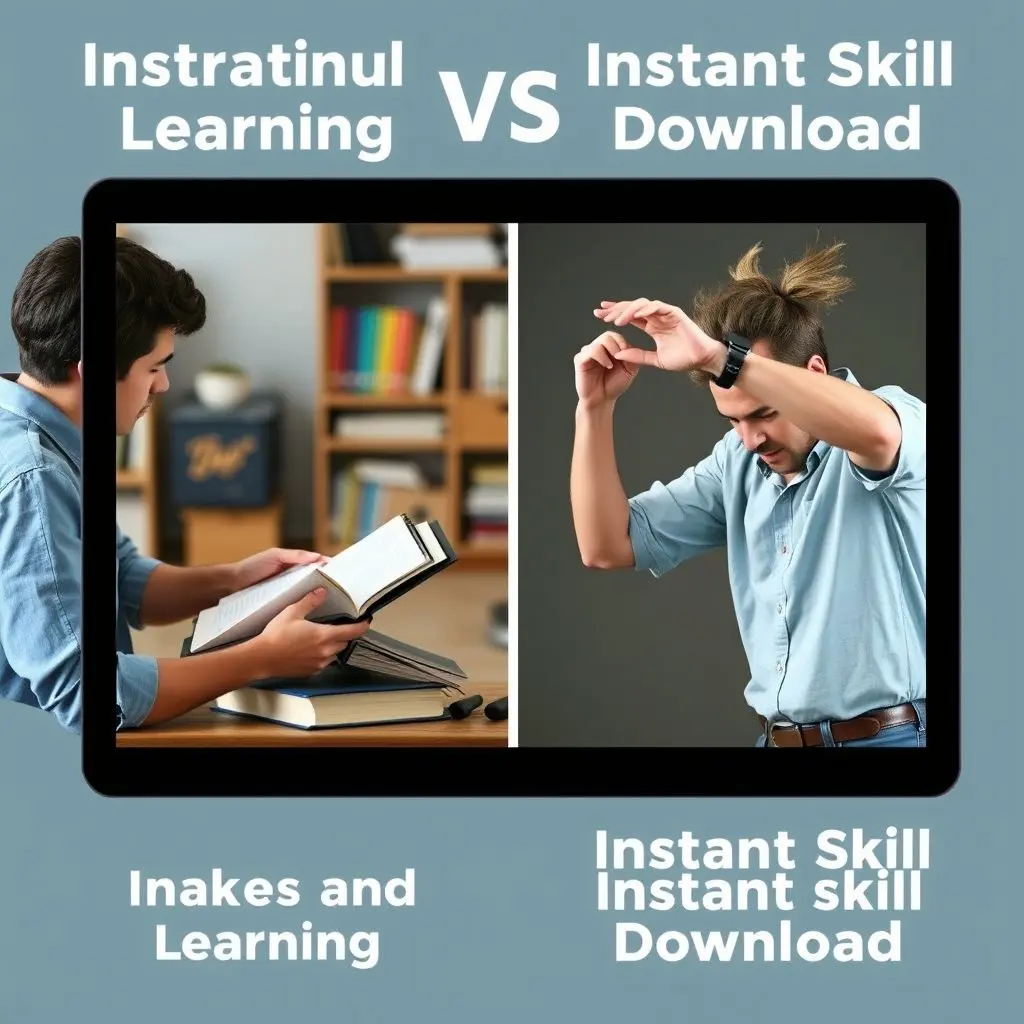
How Might This Even Work? Peering into the Hypothetical
For skill downloading to move from fiction to even theoretical possibility, we’d need breakthroughs in several complex fields, primarily neuroscience and bio-engineering.
1. Direct Neural Interfaces (Brain-Computer Interfaces – BCIs)
The first step would be a sophisticated interface capable of reading from and *writing to* the brain with incredible precision. Current BCIs, like those used for prosthetics or communication for individuals with paralysis, primarily read brain signals or provide limited stimulation. They are far from capable of encoding complex information like skill memory.
A skill-downloading interface would need to target specific neural networks responsible for different types of memory and motor functions. This requires an unprecedented understanding of how skills are encoded at the synaptic level.
2. Understanding and Mapping Skill Encoding
We still have a lot to learn about how the brain stores complex skills. Is it just a pattern of synaptic strengths? Are there specific neural assemblies? Could we capture the ‘essence’ of a skill from one expert brain and transfer it? This process would involve not just raw information, but procedural memory – the ‘how-to’ knowledge that allows you to perform an action without consciously thinking about every step.
3. Replicating Synaptic Plasticity Artificially?
Learning involves structural changes in the brain. A download system would theoretically need to induce similar changes rapidly and accurately. This is perhaps the biggest hurdle. We’d need methods to manipulate individual or groups of synapses, perhaps using targeted electrical stimulation, genetic engineering, or novel molecular mechanisms.
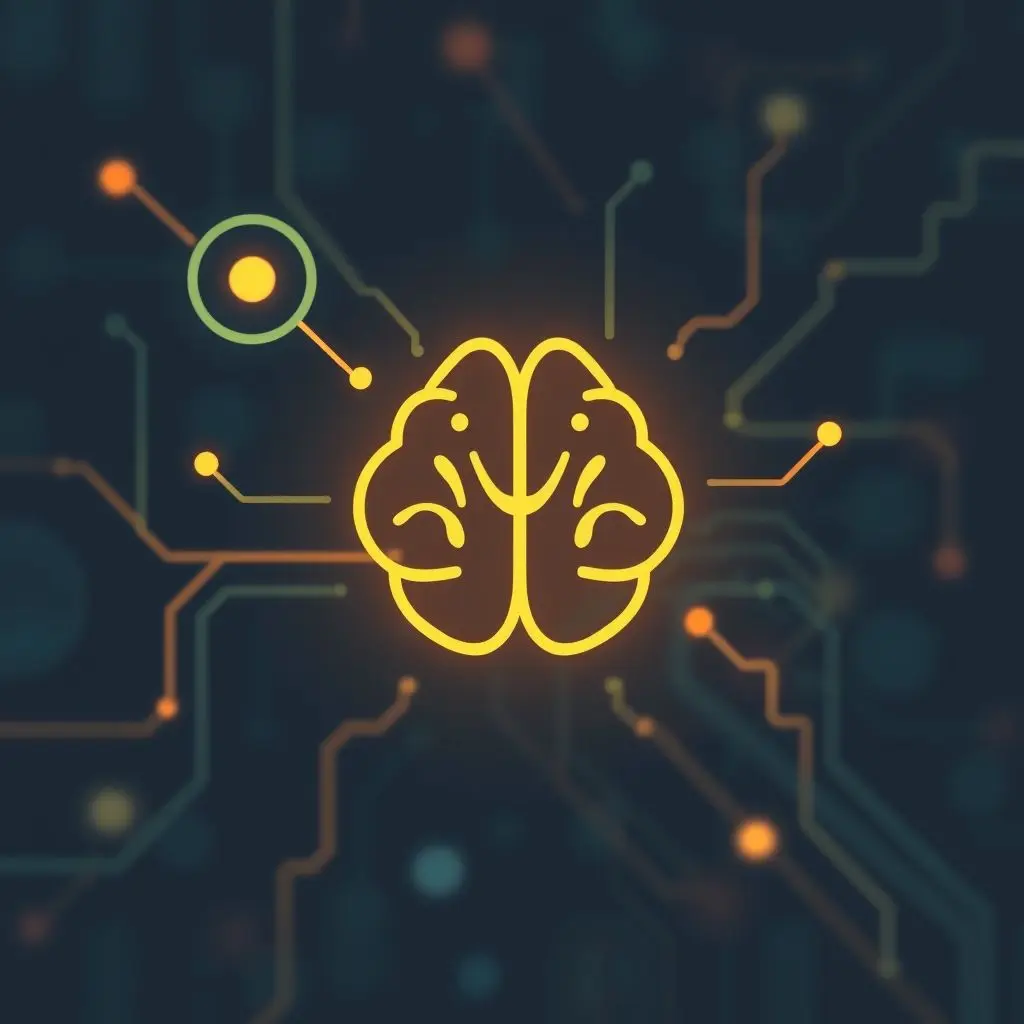
Current Research: Tiny Steps Towards a Giant Leap?
While instant skill downloads remain firmly in the realm of speculation, current research areas are building foundational knowledge that *could* eventually contribute to such a future:
- Advanced BCIs: Efforts are underway to create higher-bandwidth, less invasive brain interfaces. Companies like Neuralink are pushing the boundaries of connecting the brain to external systems.
- Neuroprosthetics: Devices that restore function by bypassing damaged pathways provide insights into how motor commands are generated and interpreted by the brain.
- Targeted Neurostimulation: Techniques like Transcranial Magnetic Stimulation (TMS) or Transcranial Direct Current Stimulation (tDCS) are being explored for their potential to enhance learning or cognitive functions, though their effects are generally modest and not skill-specific downloads.
- Memory Research: Scientists are making strides in understanding how memories are formed, stored, and retrieved, which is crucial for understanding skill encoding.
None of these technologies are close to facilitating complex skill downloads, but they represent our increasing ability to interface with and understand the brain.
Potential Benefits: A World of Instant Mastery
If this technology were possible, the implications would be staggering:
- Accelerated Learning: Imagine needing a new skill for a job and acquiring it instantly. The pace of innovation and individual capability would skyrocket.
- Elimination of Barriers: Physical limitations or lack of access to traditional education wouldn’t prevent someone from gaining a skill.
- Rapid Personal Development: Individuals could curate a vast repertoire of skills throughout their lives, adapting quickly to changing environments.
- Enhanced Human Capabilities: Beyond typical human skills, one might download specialized knowledge or even sensory capabilities. (Highly speculative!)
The Dark Side: Ethical, Social, and Existential Questions
Naturally, such a powerful technology comes with profound potential downsides:
- The Nature of Learning: Does downloading bypass the valuable lessons learned through struggle, failure, and perseverance? Is a downloaded skill truly ‘yours’ in the same way as a hard-earned one?
- Equality and Access: Would this technology only be available to the wealthy, creating an even wider chasm between social classes?
- Control and Security: Who controls the ‘skill library’? Could malicious skills or unintended information be downloaded? Could the technology be used for mind control or manipulation?
- Identity: If you can download any personality trait or skill, what happens to the unique journey of self-discovery that current learning entails?
- Economic Disruption: How would a world of instant skills impact traditional education, job markets, and the value of expertise gained through experience?
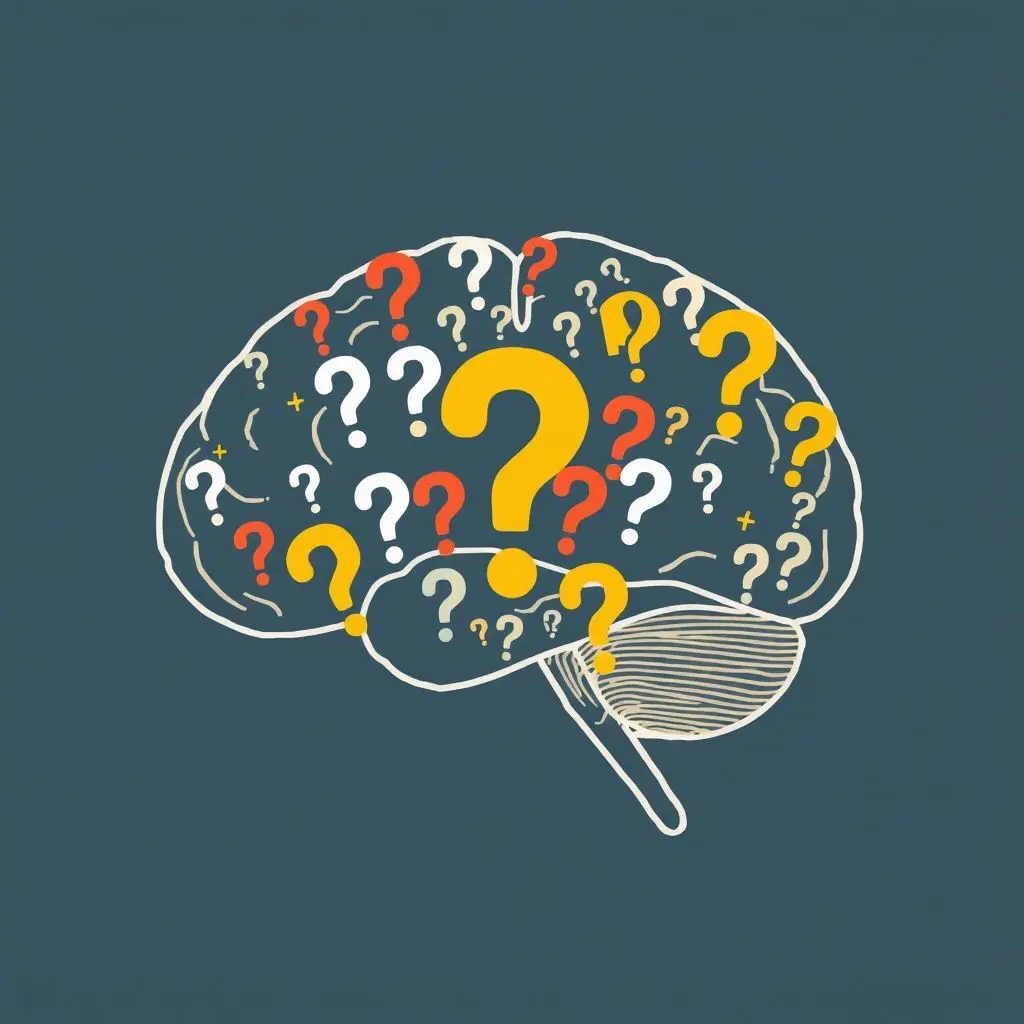
Science Fiction for Now, But Inspiring Future Research
Let’s be clear: downloading complex skills directly into the human brain is currently in the realm of theoretical physics and speculative science fiction. The challenges, from understanding the brain’s encoding mechanisms to developing precise and safe interfaces, are immense and may require centuries of research, if ever possible.
However, these thought experiments are valuable. They push us to consider the ultimate potential of neuroscience and technology, highlighting both the incredible possibilities and the critical ethical questions we must address along the way. While we might not be downloading Kung Fu tomorrow, research into BCIs and learning enhancement is rapidly advancing, potentially changing how we interact with technology and augment our capabilities in less dramatic, but still significant, ways.
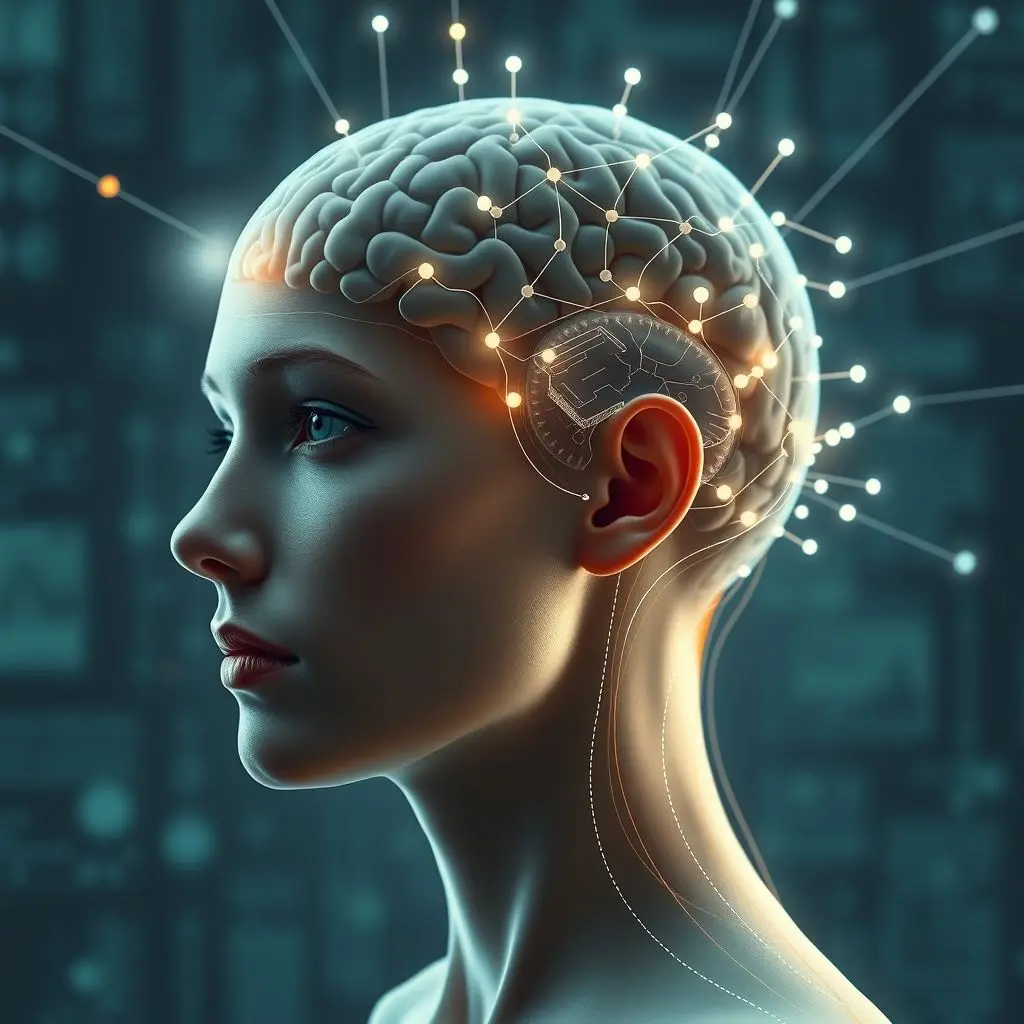
Frequently Asked Questions About Skill Downloading
Is downloading skills to the brain scientifically possible today?
No, it is not scientifically possible today. Our understanding of how skills are encoded and the technology required to write complex information directly to the brain are nowhere near this capability. It remains a hypothetical concept.
What are the biggest challenges to making skill downloading a reality?
The biggest challenges include fully understanding the neural basis of complex skills (procedural memory), developing high-resolution, safe, and precise brain interfaces capable of writing information, and figuring out how to induce rapid, targeted synaptic plasticity.
Could this technology be used for things other than skills?
Theoretically, if the underlying technology to directly interface with and write to the brain existed, it might also have implications for memory recall, sensory input simulation, or even consciousness manipulation, though these are even more speculative and raise significant ethical red flags.
How is current brain-computer interface (BCI) research related?
Current BCI research is foundational. It’s developing the technology to interface with the brain. While today’s BCIs mainly read signals or provide basic input, future generations *might* gain the precision needed for writing complex information, a prerequisite for skill downloading.
Would a downloaded skill feel the same as a learned skill?
This is a fascinating question. A skill learned through practice involves struggle, muscle memory, and deep subconscious processing. A downloaded skill *might* provide the functional ability, but it’s unclear if it would come with the same intuitive feel, adaptability, or the sense of accomplishment derived from the learning process.
Looking Towards a Future of Enhanced Capabilities
While instant skill downloads remain a distant, perhaps impossible, dream, the questions they raise are vital as we navigate the real and rapid advancements happening in neuroscience and AI. How will future technologies augment human capabilities? What do we value in the learning process itself? The path forward involves not just technological innovation, but careful consideration of the kind of future we want to build, one where technology enhances rather than diminishes the human experience of learning and growth.
